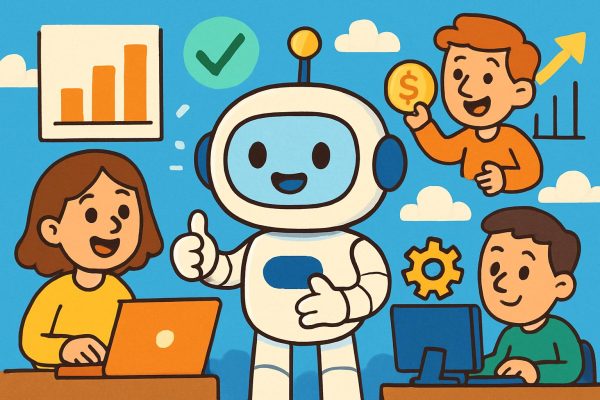As consulting adopts technologies that automate the mundane, it’s not just how work gets done that’s changing—it’s what skills are essential to do it well. Can human expertise and machine efficiency find the right balance, or will one overshadow the other?
Is AI a friend or a foe? examines the sweeping changes artificial intelligence is bringing to the consulting industry. Published by Financial Express, the article highlights how top consulting firms are integrating AI-powered tools alongside their human expertise to solve problems more effectively, accelerate processes, and add new dimensions to client services. By automating tasks like data analysis, research, and financial modeling, consultants can shift their focus to crafting strategies and delivering customized solutions. This shift is not only speeding up formerly tedious tasks but is also altering the roles and requirements for consultants, particularly at the entry level. Graduates and professionals are learning to combine technical fluency with human skills to deliver lasting impact.
The article discusses how business schools are adapting to this trend, updating their offerings to include courses on data analytics and AI-driven decision-making. Institutions like Indian Institutes of Management and Indian School of Business are developing curricula that teach students how to interpret AI-generated insights and pair them with critical thinking and creativity. With the growing demand for highly skilled, tech-savvy consultants, professionals will need to explore innovative ways to blend artificial intelligence with human vision and judgment.
Industry insiders cited in the article suggest that this shift is being met with optimism. While repetitive tasks are increasingly automated, consultants are being freed to focus on complex problem-solving, which remains the essence of their role. Furthermore, the inclusion of AI in consulting is not merely a tool but an expectation from clients who demand precision, speed, and well-designed solutions.
Why It’s Worth Understanding
The story stands out because it highlights how a traditionally human-heavy industry is changing to keep pace with evolving tools and methods. Artificial intelligence has moved beyond experiments into real-world application for analyzing masses of information in record time. Consultants no longer spend weeks on preliminary research; they can now dedicate more energy toward analysis, judgment, and producing actionable insights. At the same time, the adoption of AI in consulting offers a glimpse into how other industries might rethink their processes when supported by smart technologies.
For organizations relying on consulting advice, this movement signals faster outputs and strategies backed by deeper, data-driven insights. It also reshapes the consulting business model itself, introducing opportunities to build recurring revenue through software and platforms developed in-house. This progression shows how businesses must adapt to and leverage technologies to remain competitive.
Benefits
The efficiency and scalability brought on by these changes could make a significant impact. Teams can produce more in less time, offering cost-effective services to clients. By reducing human hours spent on repetitive tasks, firms can invest more resources into creative and strategic solutions. This process also encourages innovation within consulting firms, as they’re now required to reimagine services that combine technology with personal expertise. Additionally, it creates a more balanced work environment, sparing junior consultants from mundane tasks and letting them contribute in more meaningful ways to projects.
Concerns
The introduction of such technologies does pose challenges. When routine tasks are automated, entry-level roles may see reduced demand, potentially increasing the barrier to entry for aspiring consultants. This change also raises questions about maintaining quality and ensuring that consultants are skilled enough to interpret AI-generated data properly. Furthermore, over-reliance on algorithms might lead to standardized problem-solving approaches, limiting the innovative potential that human creativity may bring.
Possible Business Use Cases
– Develop a platform for consulting firms that integrates AI tools with knowledge-sharing frameworks to create efficient workflows.
– Create a data-driven educational service that helps business students practice integrating technology with decision-making in realistic consulting scenarios.
– Build industry-specific AI assistants that can provide customized insights and solutions for highly specialized fields like healthcare, finance, or supply chain management.
The changes facing the consulting industry highlight how companies must rethink what “value” means in a tech-infused world. Done well, these advancements offer opportunities for innovation and efficiency, but the process is unlikely to be straightforward. Balancing human intuition with technology’s capabilities will be the mark of success. For consultants—and their clients—the challenge lies in ensuring that these tools improve, rather than replace, the thoughtful problem-solving that organizations depend on to succeed. This challenge, while potentially intimidating to some, may reshape industries in a way that celebrates both progress and purpose.
—
You can read the original article here.
Image Credit: GPT Image 1 / 80s Airbrush.
Make your own custom style AI image with lots of cool settings!
—
I consult with clients on generative AI-infused branding, web design, and digital marketing to help them generate leads, boost sales, increase efficiency & spark creativity.
Feel free to get in touch or book a call.




